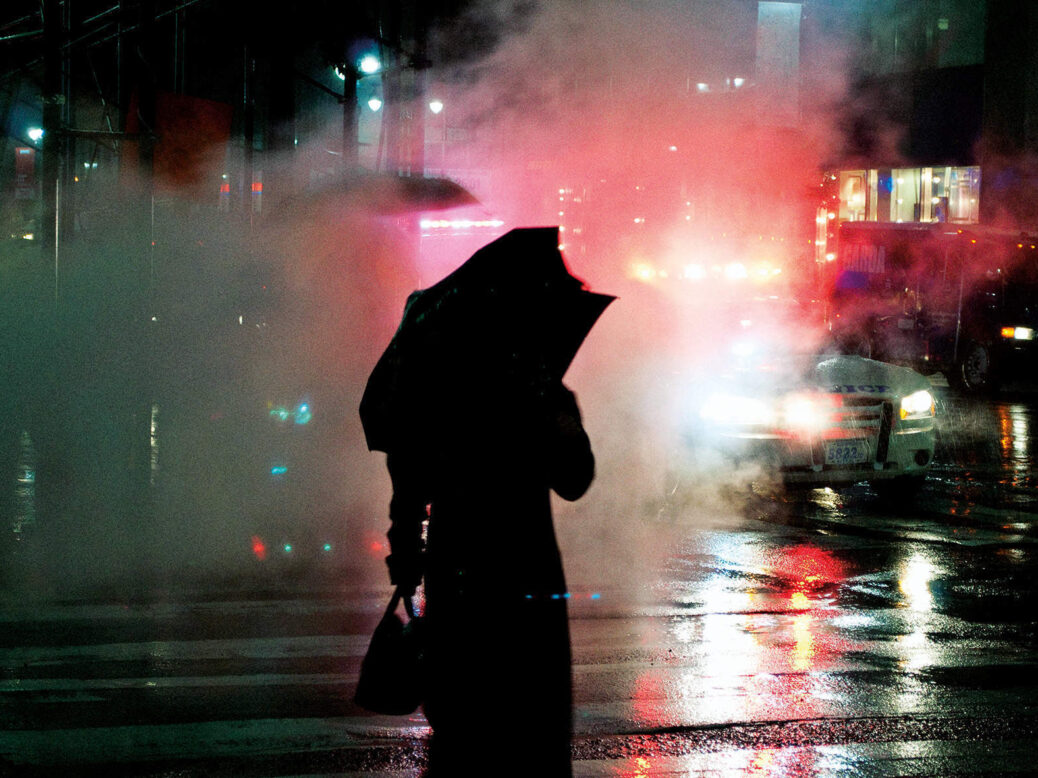
Hannah Sullivan’s debut collection, Three Poems, shares its title with a book by John Ashbery, but that turns out to be a red herring. The blurb compares the work to “the great modernising poems” of Eliot and Pound, but that’s equally misleading (and seriously: modernising? Like Dr Beeching? Or Jeremy Hunt?). A better point of comparison for the first poem here, “You, Very Young in New York”, would be an early Jean-Luc Godard movie, full of gorgeous, disenchanted, worldly-naive, cynical-innocents imbued with a sense of being both at the centre of the world and not yet fully part of it: “You stand around/On the same street corners, smoking, thin-elbowed,/Looking down avenues in a lime-green dress/With one arm raised, waiting to get older.”
Terza rima gives way to rhyming couplets and other stanzaic shapes, the brilliant, witty end-rhymes matched by an equally inventive syntax. By “very young” Sullivan means teenaged or early twenties, and, from sex-with-an-ex to the drudgery of office work, she offers a hymn to the age when there is no clear line between conviction and posturing: “You are slightly disappointed in Obama’s domestic policy,/You think the great American novelist is David Foster Wallace.”
Sullivan is at her best when she focuses on a distinct period of time, and specifically on how the body experiences it. The third poem here, “The Sandpit After Rain”, concerns pregnancy, a difficult birth, and the death of the poet’s father soon afterwards. Despite the emotive subject matter, Sullivan remains pithy (“The surgeon seemed too young,/The anaesthetist had something of the hockey team about her”) and unsentimental: the baby is finally “hauled out, in a windowless room/Somewhere near Paddington to Radio 5 Live”. The death-bed reflections are similarly tough-minded, though never tough-hearted: “Wishing them still, wishing for silence, wishing this life lost,/Wishing for it to be odourless, man’s loss of the last animal lust./Yes, let it be odourless.”
The more abstract “Repeat Until Time” takes pattern and repetition – in art and in life – as its subject, testing it with various hypotheses. One poem begins, “True form is often seen only in retrospect, too late,” and the next, “True form is overlaid, like moss on broken tiles.” Atomic tests, personal relationships and the origins of the Milky Way are woven together, and if the poem doesn’t entirely rise to the challenge it sets itself, that’s because its ambition is enormous. Three Poems is a richly rewarding collection that shows all the confidence and skill of a poet writing in their prime: it is hard to believe this is a first book.
Danez Smith has little in common with Sullivan, but both are audacious formalists. Don’t Call Us Dead, Smith’s second collection, winner of the 2018 Forward Prize, is at once a book that sings with soaring fluency, an account of navigating a society in convulsion and an investigation – “intervention” might be a better word – into how a contemporary elegy may be shaped and what it can contain. Like Claudia Rankine’s Citizen or Denise Riley’s Say Something Back, this is a book that feels as if it redefines the ways in which the lyric is currently conceived.
Smith is a queer, HIV-positive African American, and blood is the central image of the book: blood as history (“history is what it is. it knows what it did./bad dog. bad blood”) or blood as destiny: “i will die in this bloodcell.” One poem, “blood hangover”, is created by erasing words from Diana Ross’s “Love Hangover”; another, “elegy with pixels & cum”, ends with the words “my blood” and “his blood” proliferating until they swarm all over the page.
The elegy is a form that is always bound up with ethics: the occasion of loss provokes the elegist to reflect on what they value – and in this way an elegy always describes a community, for those values may or may not be shared by a culture or a nation. The form is also always fraught with the political ramifications of speaking for others who cannot speak for themselves, and of how candid the elegist’s disclosures should be – one poem here is simply, or not-so-simply, entitled “not an elegy”.
Smith dramatises these issues by having the dead speak for themselves (“who knew my haven/would be my coffin?/dead is the safest i’ve ever been”) and by writing a number of self-elegies in which he places himself in relation to more visible forms of violence: “i’m not the kind of black man who dies on the news./i’m the kind who grows thinner & thinner & thinner…” and “i am a house swollen with the dead, but still a home./the bed where it happened is where i sleep.” That’s one way to end a poem: with a line like a punch in the gut – but often these poems work to drive open a space of hope and resistance.
Smith’s visions of the afterlife are visions of this world caught and held in a moment between hates: “paradise is a world where everything/is sanctuary & nothing is a gun.” It should go without saying that these poems’ concerns speak as urgently to readers in the UK as the US: after Brexit, after Windrush, we too are deciding, or discovering, the sort of country we want to be.
Paul Batchelor is a poet and editor of “Reading Barry MacSweeney” (Bloodaxe)
Three Poems
Hannah Sullivan
Faber & Faber, 73pp, £10.99
Don’t Call Us Dead
Danez Smith
Chatto & Windus, 88pp, £10.99
This article appears in the 17 Oct 2018 issue of the New Statesman, Europe’s civil war






